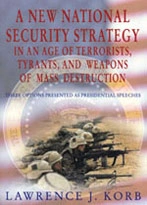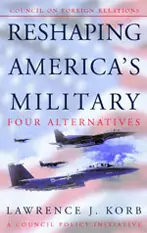- Iran
- Israel-Hamas
-
Topics
FeaturedIntroduction Over the last several decades, governments have collectively pledged to slow global warming. But despite intensified diplomacy, the world is already facing the consequences of climate…
-
Regions
FeaturedIntroduction Throughout its decades of independence, Myanmar has struggled with military rule, civil war, poor governance, and widespread poverty. A military coup in February 2021 dashed hopes for…
Backgrounder by Lindsay Maizland January 31, 2022
-
Explainers
FeaturedDuring the 2020 presidential campaign, Joe Biden promised that his administration would make a “historic effort” to reduce long-running racial inequities in health. Tobacco use—the leading cause of p…
Interactive by Olivia Angelino, Thomas J. Bollyky, Elle Ruggiero and Isabella Turilli February 1, 2023 Global Health Program
-
Research & Analysis
Featured
Terrorism and Counterterrorism
Violence around U.S. elections in 2024 could not only destabilize American democracy but also embolden autocrats across the world. Jacob Ware recommends that political leaders take steps to shore up civic trust and remove the opportunity for violence ahead of the 2024 election season.Contingency Planning Memorandum by Jacob Ware April 17, 2024 Center for Preventive Action
-
Communities
Featured
Webinar with Carolyn Kissane and Irina A. Faskianos April 12, 2023 Academic and Higher Education Webinars
-
Events
FeaturedJohn Kerry discusses his work as U.S. special presidential envoy for climate, the challenges the United States faces, and the Biden administration’s priorities as it continues to address climate chan…
Virtual Event with John F. Kerry and Michael Froman March 1, 2024
- Related Sites
- More
January 27, 2014
Fossil FuelsRobert Lawrence shows that, absent other changes in the economy, benefits from declining oil imports for the long-term U.S. trade deficit have been overstated.

April 9, 2020
Artificial Intelligence (AI)The Department of Defense is struggling to adopt artificial intelligence technologies. Lindsey Sheppard explains the challenges the department faces and recommends strategies for moving forward.

May 28, 2003
Defense and SecurityOverview Almost exactly a year after the September 11, 2001, terrorist attacks, President George W. Bush released to Congress and the American public his National Security Strategy, the most detai…

July 1, 2002
Budget, Debt, and DeficitsOverview In the wake of the September 11 attacks and the ensuing war on terrorism, the United States began a massive buildup in its defense budget. There was little public debate, however, about t…

August 5, 2015
EconomicsSteven A. Tananbaum Senior Fellow for International Economics Robert Kahn argues that China’s request to include its currency, the renminbi (RMB), in an International Monetary Fund (IMF) currency basket, known as special drawing right (SDR), is political as much as economic in intent and effect. The inclusion would signal a milestone in China’s transition to a less-regulated economy.
 Online Store
Online Store